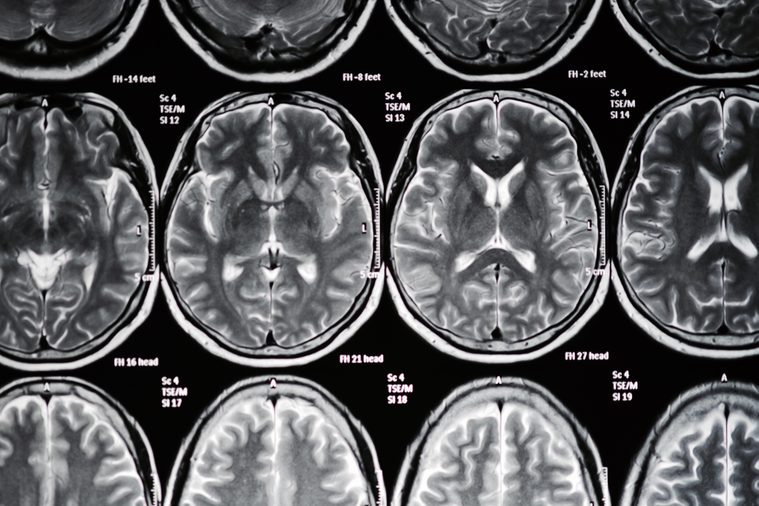This Common Skin Condition Could Be Linked to Alzheimer’s
Updated: Mar. 17, 2022
Could an extremely common virus raise your risk of developing Alzheimer's disease? Here's what you need to know.

Alzheimer’s disease is tragic: This deadly, irreversible brain disorder slowly destroys a person’s memory, thinking skills, and the ability to carry out simple tasks, according to the National Institutes of Health. Not only is there no cure, but no one knows why the disease attacks the brain in the first place. Now a study suggests that common herpes viruses may be linked to Alzheimer’s.
Researchers have long suspected that there may be a connection between dementia and herpes simplex virus 1, or HSV-1, which causes cold sores, or fever blisters. In an attempt to find new ways to use drugs to treat Alzheimer’s, scientists, including experts from the Icahn School of Medicine at Mount Sinai in New York City and Arizona State University in Phoenix, analyzed nearly 1,000 brains from brain banks around the world. Their results, published in the journal Neuron, indicate a strong connection between Alzheimer’s and the herpes viruses responsible for the childhood rash roseola: HSV-6A and HSV-7.
Herpes can lie dormant in the body for decades, and having a herpes infection doesn’t guarantee you’ll get dementia, the researchers note. Some people may carry a genetic susceptibility to Alzheimer’s, the virus or both, leading to brain deterioration. The researchers also point out that their results show only a link between herpes and Alzheimer’s.
Other recent findings underscore the importance of exploring the herpes-Alzheimer’s connection: In a study published earlier this year in Neurotherapeutics, Taiwanese epidemiologists found that people infected with HSV-1 had three times the risk of developing Alzheimer’s later in life compared with those who were virus-free. Even more remarkable, the researchers found that infected patients who sought antiviral treatment (using drugs like acyclovir) cut their risk of Alzheimer’s by a factor of ten. In a commentary on the study, scientists at the universities of Manchester and Edinburgh say that the results raise the possibility that antiviral drugs—and potentially vaccinations—may offer protection against Alzheimer’s.
The findings are compelling; while we wait for researchers to confirm the results, take care not to fall for these 15 myths about Alzheimer’s disease.
